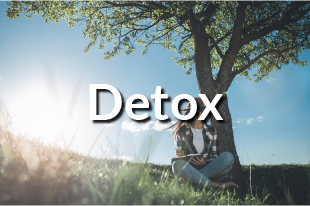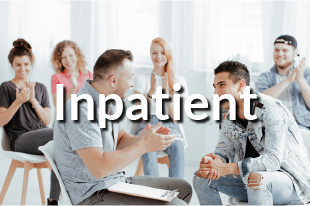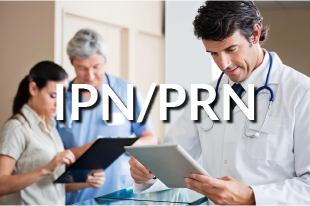According to the National Institute on Alcohol Abuse and Alcoholism, 10.2% of Americans suffer from alcohol use disorder. This means that they cannot control their drinking and would have extreme difficulty ceasing to drink if they wanted to do so. A vast majority of these individuals are uncertain whether or not they have a drinking problem, and many of them may not even be aware of the possibility that they have one. This is where alcohol screening and brief intervention (SBI) comes in.
What Is Alcohol SBI?
Alcohol SBI is a widely used preventive healthcare approach. It focuses on identifying and addressing risky alcohol use among individuals who may not even realize they have a problem. It mainly involves a screening, also called an assessment. A brief conversation, or intervention, then takes place. The main goals of alcohol SBI are to raise awareness of a person’s drinking issues and to motivate behavioral changes. If deemed necessary, the process can also include a referral for alcohol addiction treatment. Alcohol SBI is often the impetus for someone to begin receiving treatment for their alcoholism. It can literally save a person’s life.
How the Screening Works
The screening is nothing to be apprehensive about. The health care providers who conduct the screenings are committed to doing so in a non-judgemental way. The screening is simply a list of questions regarding your alcohol consumption and any potential effects it is having on your health or well being. Questions you may be asked include:
- On average, how many days per week do you drink alcohol?
- How often do you have a drink containing alcohol?
- How many drinks do you have on a typical day when you are drinking?
- How often do you have six or more drinks on one occasion?
- How often during the last year have you had a feeling of guilt or remorse after drinking
Based on your answers, the screener will be able to assess whether or not your drinking habits are dangerous or risky. It is important that you are 100% honest when answering these questions. Doing so will allow the screener to make an accurate and honest assessment. Remember that you will never be judged for your answers.
Brief Intervention
If the results of the screening indicate risky or dangerous drinking behaviors, a brief intervention follows. This is not like the traditional intervention you may be thinking of, where friends and family spend hours confronting someone regarding their drinking. Instead, the brief intervention is more like a 15 minute counseling session. During this session the healthcare professional will provide feedback on your drinking. This includes discussing potential health risks and exploring any motivations you may have for changing your drinking behavior.
Benefits of SBI
The benefits of alcohol SBI cannot be overstated. It can be a life-changing process. Possible benefits include:
- Prevention: SBI can help a person to address drinking problems early, before they become a serious issue. This can prevent the development of alcohol-related health issues, such as liver disease, certain cancers, and cardiovascular problems.
-
- Improved Health Outcomes: When SBI causes a change in drinking habits, it can lead to improvements in a wide range of health indicators, including reduced blood pressure, better blood sugar control, and decreased risk of certain cancers.
- Early Intervention: When SBI is included in regular health screenings, risky drinking behavior can be uncovered in individuals who have never even considered that they may have a problem.
- Cost-Effectiveness: SBI does not include the use of any expensive equipment. This makes it accessible to people from all socioeconomic backgrounds.
- Providing Motivation: Sometimes an SBI is all that is needed to make a person change their drinking habits.
-
- Targeted Approach: SBI is often used with specific populations, such as young adults or individuals with certain health conditions. This maximizes its effectiveness by targeting those who are most at risk.
- Increased Awareness: Many people are unaware of the risks associated with drinking. SBI informs people of these risks, helping them to make better informed decisions when it comes to drinking.
When looking at this list, it becomes obvious that alcohol SBI is extremely beneficial. Everyone should participate in an SBI, even if they don’t think their drinking is a problem. The benefits are innumerable, while there is almost no down side.
Risks of Excessive Alcohol in Pregnancy
It is particularly important to undergo an alcohol SBI if you are planning on becoming pregnant. This is because there are many risks associated with alcohol use during pregnancy. For this reason, it is important to ensure you do not have a drinking problem and will be able to cease drinking during pregnancy. The risks of excessive alcohol use during pregnancy include:
- Brain Damage: Alcohol can interfere with the brain development of the baby, leading to cognitive and behavioral problems that can manifest at any time during childhood.
- Physical Abnormalities: Exposure to alcohol during development can cause physical birth defects, such as facial abnormalities, such as small eyes, thin upper lip, or flattened nose bridge. It can also cause heart defects and other issues with organ development.
- Developmental Delays: Babies who were exposed to alcohol are often late on reaching developmental milestones. They may even miss them completely.
- Miscarriage: Drinking during pregnancy greatly increases the chances of suffering a miscarriage.
These are all extremely serious risks. It is better to be safe than sorry when it comes to a pregnancy. Anyone who is planning on having a baby should undergo an alcohol SBI.









